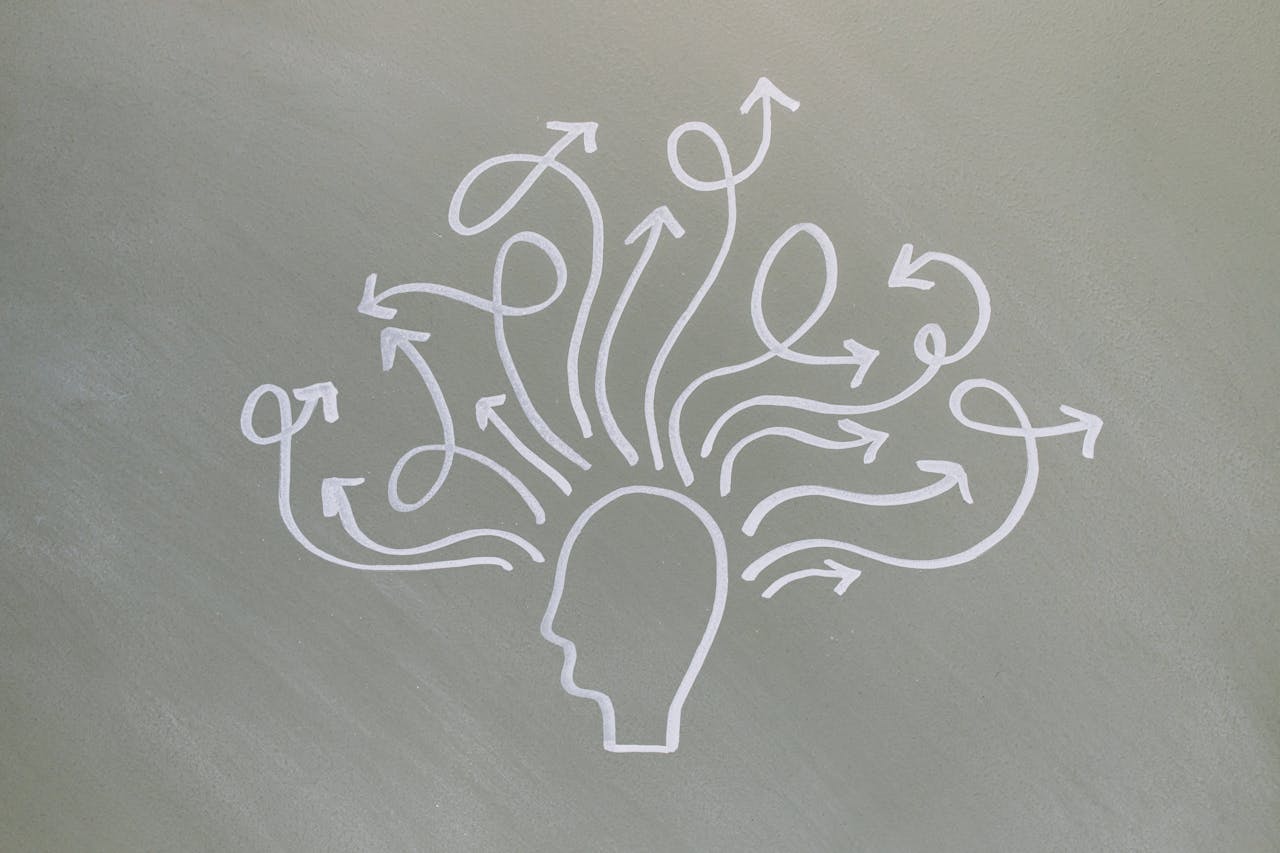Brain Fog to Clarity
From Brain Fog to Clarity: The Surprising Link Between Gut Health and Mental Wellness.
You know that feeling when you walk into a room and completely forget why you’re there? Or the afternoons when your brain feels like it’s wading through molasses—simple tasks seem overwhelming, and focus feels impossible?
It’s frustrating, isn’t it? You might chalk it up to stress, lack of sleep, or just “getting older.” But what if I told you the problem might not be in your head—what if it’s in your gut?
Yes, your gut. The very place responsible for digesting your food could also hold the key to clearing the mental fog and finding sharpness again. Intrigued? Let’s explore how these two seemingly separate worlds—your brain and your belly—are more connected than you think.
The Gut-Brain Connection: What’s Really Going On?
Have you ever had a “gut feeling”? That’s not just a figure of speech—it’s science. Your gut and brain are in constant communication through the gut-brain axis, a two-way superhighway of nerves, hormones, and chemicals.
One major player in this connection is the vagus nerve, which acts like a phone line, transmitting messages between your gut and brain. Then there’s the microbiome—a bustling community of trillions of bacteria in your gut. These microbes don’t just help digest food; they produce neurotransmitters like serotonin and dopamine, which play a big role in your mood and mental clarity.
When your gut is out of balance—say, from processed foods, stress, or antibiotics—your brain can feel the effects. Studies even suggest that an unhealthy gut might contribute to anxiety, depression, and yes, brain fog.

How Gut Imbalances Trigger Brain Fog
Picture this: Your gut lining is like a security gate, letting nutrients into your bloodstream while keeping harmful stuff out. But when your gut health takes a hit—due to poor diet, stress, or chronic conditions—that lining can become “leaky.”
This condition, known as leaky gut syndrome, allows toxins and inflammatory substances to escape into your bloodstream. These troublemakers can travel to your brain, causing inflammation and disrupting cognitive function.
And if your gut bacteria are out of whack (known as dysbiosis), they might not produce enough of those mood-boosting chemicals like serotonin. Instead, harmful bacteria could take over, releasing substances that heighten anxiety or cloud your thinking.
What Are the Signs of Gut-Related Brain Fog?
You might be wondering, “How do I know if my gut is the culprit?” While it’s always a good idea to consult a healthcare professional, here are some common clues:
Frequent bloating, gas, or digestive discomfort.
Sugar cravings or a diet high in processed foods.
Fatigue that no amount of sleep seems to fix.
Trouble concentrating or remembering details.
Feeling down, anxious, or irritable for no clear reason.
If these sound familiar, don’t worry—you’re not alone. Many people struggle with gut health without even realizing it.
Simple Steps to Heal Your Gut—and Clear Your Mind
The good news? You don’t have to stay stuck in the fog. By supporting your gut health, you can boost your mental clarity and overall well-being. Here’s how:
1. Feed Your Microbiome
Your gut bacteria thrive on fiber-rich foods like vegetables, fruits, whole grains, nuts, and seeds. Probiotic-rich foods like yogurt, kefir, sauerkraut, and kimchi can replenish healthy bacteria, while prebiotic foods (like garlic, onions, and bananas) feed them.
2. Cut Back on Inflammatory Foods
Processed foods, refined sugars, and artificial additives can irritate your gut lining and fuel harmful bacteria. Focus on whole, minimally processed foods instead.
3. Hydrate Like It’s Your Job
Dehydration can slow digestion and make brain fog worse. Aim for at least eight glasses of water a day—and more if you’re active or live in a warm climate.
4. Manage Stress (Easier Said Than Done, I Know)
Chronic stress wreaks havoc on your gut, altering its bacterial balance and weakening your immune system. Try stress-relief techniques like deep breathing, yoga, or meditation—even five minutes can make a difference.
5. Get Your Sleep Back on Track
Your gut and brain both recover while you sleep, so aim for 7-8 hours a night. If insomnia or restless sleep is an issue, calming teas (like chamomile) or magnesium supplements might help.
6. Consider Supplements
Probiotics, omega-3 fatty acids, and vitamin D can support gut health and mental wellness. Always consult with a healthcare provider to find what’s right for you.
You Deserve to Feel Clear and Energized
Imagine waking up feeling rested and focused—ready to tackle the day with a clear mind and steady energy. Picture yourself remembering details with ease, staying calm under pressure, and actually enjoying the moments that matter most.
It’s not a pipe dream. By taking small steps to nurture your gut, you can reclaim your mental clarity and emotional balance. It won’t happen overnight, but every healthy choice brings you closer to the vibrant, energized version of yourself.
Remember, you don’t have to do this alone. I’m here to support you (because I’ve been there, too). Let’s take it one step at a time—starting with your next meal.
Your journey from brain fog to clarity starts now.





